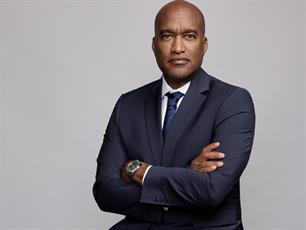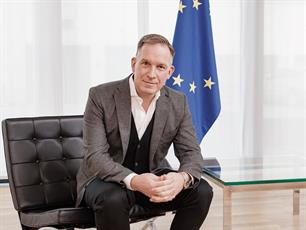Holmes Report 31 Aug 2011 // 11:00PM GMT
Summary Highlights
Delivered a successful media and partnership development campaign including the Nation’s hosting of England for the FIFA 2010 World Cup
Built the Nation’s communications team and communications programme from scratch
Created the platform for the Nation to espouse a new formula for economic development in Africa
Enhanced the reputation of the Monarchy and positioned the King as thinking Beyond Platinum
Background
For 300 years the Royal Bafokeng Nation, a 300,000 strong independent territory, has been led by visionary Kings. One legendary King sent his young men to walk many miles to the Kimberley diamond mines raising money for German Lutheran priests to buy land which was held in trust for the Bafokeng people. It was later discovered this land contained the world’s largest platinum deposit, the Merensky Reef.
For 20 years, Bafokeng has developed the mines and used the revenue from platinum sales to improve local lives.
The current King, Kgosi Leruo Tshekedi Molotlegi, understands this natural resource will diminish during the next 50 years, potentially leaving the destiny of his people exposed. He has made it his mission to develop a Master Plan to ensure the long-term well-being and prosperity of his Nation by looking beyond the immediate riches of their platinum mines.
The Master Plan establishes initiatives to diversify the Nation away from its reliance on platinum by investing in the creation of a sustainable community and by educating, uplifting and providing welfare for the Bafokeng people; this includes investment in education, the development of sustainable towns/housing, renewing agriculture and farming and the development of sport to give hope to the Nation’s young people.
Realising that the Royal Bafokeng Nation needed external investment/partners, the King hired College Hill to enhance and communicate the Plan’s key messages. This task intensified as the Nation was selected to host group matches for the 2010 FIFA World Cup - and then also host the FA and England football team at a planned new sporting retreat and hotel which was at that time merely a gleam in the young King’s eye.
The Brief
Attract investment into the development of the Royal Bafokeng Nation and secure its future and its Monarchy by positioning the Nation’s plans as a new formula for African development
Develop a clear narrative about the Bafokeng Nation, supported with appropriate marketing materials, to present the Bafokeng’s plans and achievements, thereby uplifting the Bafokeng community
From scratch, build and train a professional communications function allowing the Bafokeng leadership control of messaging with external and internal stakeholders
Develop a broad, comprehensive international and domestic media programme; proactively pushing the messaging around the Master Plan, responding to the inevitable interest around the World Cup and leveraging that opportunity for maximum exposure
Prepare the ground for the Nation to attract funding and investment for future projects and plans
The work was to be led by College Hill in London with the support of the agency’s South African office based in Johannesburg.
Challenges:
An intelligent but very shy King unused to working in public and in the glare of the international media
A lack of infrastructure/technology out in the bush in Phokeng, the capital of the Nation
A community completely unprepared for the media and public circus accompanying a World Cup tournament - and the England football team staying in their “village” for several weeks
Strategy / Our Approach
The strategy fell into three distinct phases:
1. Build a competent communications team and function – learn how to handle the media
2. Arrange UK visit by the King to leverage international interest before the World Cup
3. Manage the “Live” World Cup media communications
Phase 1 – Communications - The Key Activities
Develop team structure, hiring of key staff, policies and protocols
Create a communications function – press releases, media databases
Establish Communications Plan for external stakeholders, key target audiences
Create the Bafokeng narrative – messaging workshop in Phokeng, Q&A
Develop marketing materials – new website and content, fact sheets, speeches
Develop media programme to include events such as the Mandela Peace Cup, the British Lions Tour, the FIFA Confederation Cup and a Supreme Council visit to the South African Parliament
Secure some early media wins to boost confidence and show that the team can deliver
Hold media events around the Peace Cup and the British Lions Tour
Local community readiness and outreach planning
Crisis preparation – travelling fans and terrorism
Launch of new website – www.bafokeng.com – and Royal Bafokeng Nation Facebook site
Creation of an “Operations War Room” in Phokeng
Phase 2 – The UK Visit - Key Activities
Logistics and itinerary planning – media schedule, meetings with government dignitaries and key leaders in education, housing, health and welfare
o Speech in the House of Commons
o Visit to Said Business School, Oxford; Eton College and Phoenix School in Hammersmith
o Planning meeting with the UK Football Association and visit to Wembley
Media training for the Nation’s top 20 executives
Ongoing media advice and coaching for key staff in central communications team
Development of specific messaging, Q&A, positioning statements
Handle media and other interviews around the Nation and its involvement in the World Cup
In Phokeng - South African media day at the Royal Bafokeng Sports Palace and related media activity
Phase 3 – The World Cup “Live” – Key Activities
Welcome press event for the England football team
Launch press conference by the Nation for visiting UK and international press
Daily press briefings around the England team
Press conferences/launches around visiting group stage football teams – including Japan (and visit of the Japanese Imperial Princess), United States (including Bill Clinton), New Zealand and Algeria
Opening of the Nation’s new Lebone II school attended by Vice President of US, Joe Biden
Results / Evaluation Against Objectives
Clear positioning for the King’s Master Plan and for the future of the Nation – as reflected in all related activities and media coverage
Significant dedicated articles on Bafokeng and the Master Plan; profile of the King including:
o Front page - New York Times
o 5 page spread in the FT Wealth Magazine
o Full page article on page 6 of Time Magazine
o Several BBC TV, Sky, NHK and other broadcast features and interviews,
o Significant articles in FAZ, L’Equipe, LA Times, The Telegraph and The Independent
…. And thousands of mentions in print and on line around the World Cup
Client estimation of media value R1b = £100m
A fully functioning communications team in Phokeng able to handle all types of international and domestic media enquiry
Fully functioning suite of marketing materials and a new website
Conducted a highly successful visit to the UK by the King – profile raising, establishing allies in the UK
Endorsements and plaudits from FIFA and the FA – positive media coverage about the Bafokeng hotel, training and stadium facilities even in the aftermath of England’s humiliating exit
Platform established for the launch of new initiatives to attract new and on-going investment and funding into the Nation. 2010 saw
o The launch of one of the most modern schools South Africa (Lebone II)
o The listing of the Nation’s platinum company on the Johannesburg Stock exchange
o External commitment for many other projects in sport and other fields including participation in 2012 Olympics and Martial Arts World Championships
o Talks have started with many potential external economic and industry partners
“One of the best base camps. One of the best pitches in the country. If all the villages of the world were like here, it would be a huge relief.“ Jerome Valcke, Secretary General, FIFA
“The Royal Bafokeng Nation is fast becoming a model of community regeneration for South Africa, Africa and the world. It’s leadership combines elected, appointed, and hereditary leaders committed to long-term future-oriented planning. The Royal Bafokeng Stadium stands as the only community-owned stadium in the FIFA 2010 World Cup.
College Hill helped us meet our objective of positioning ourselves as a progressive community with global relevance.” His Majesty the King, Royal Bafokeng Nation


































.jpg)






.tmb-135x100.png)










